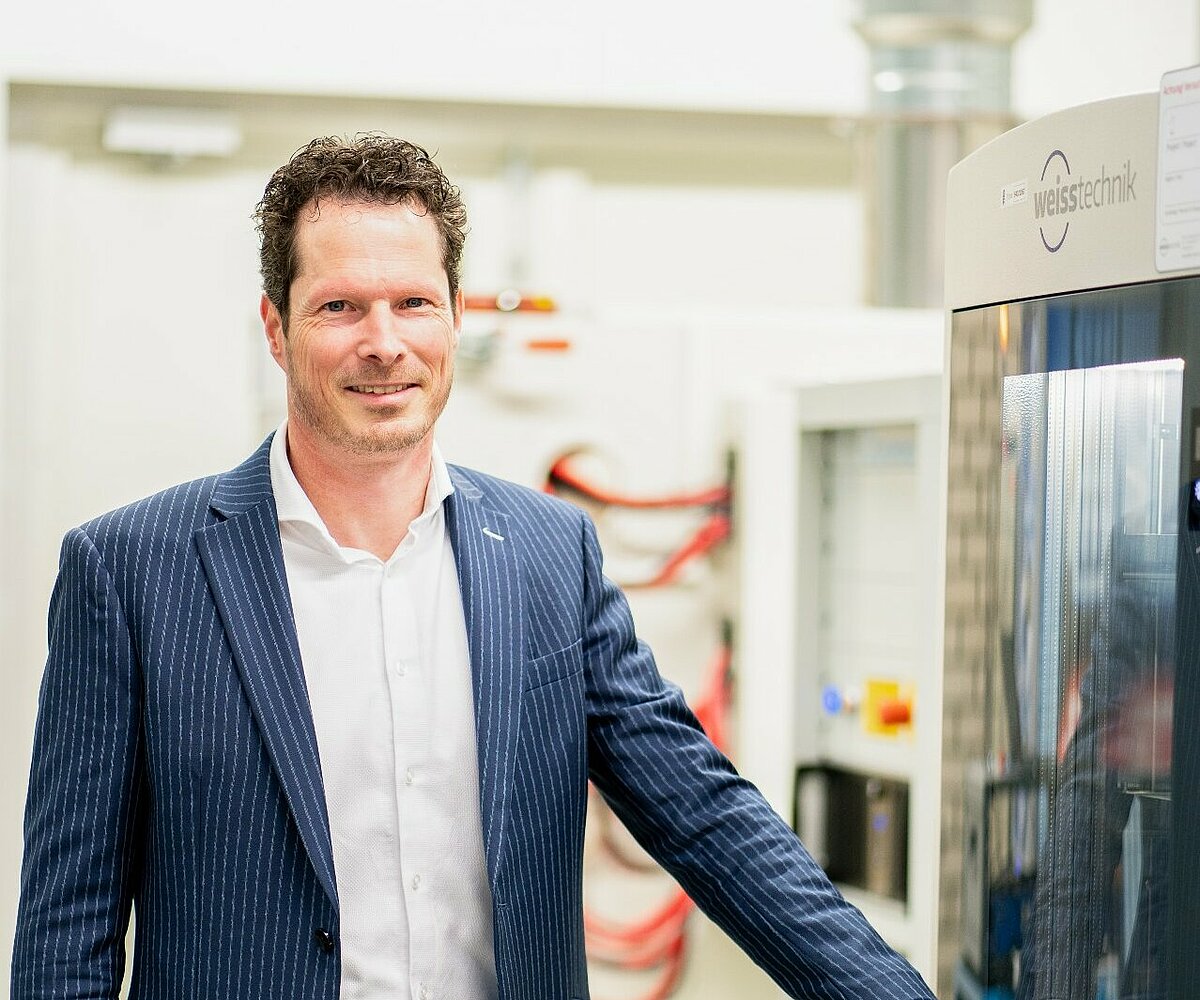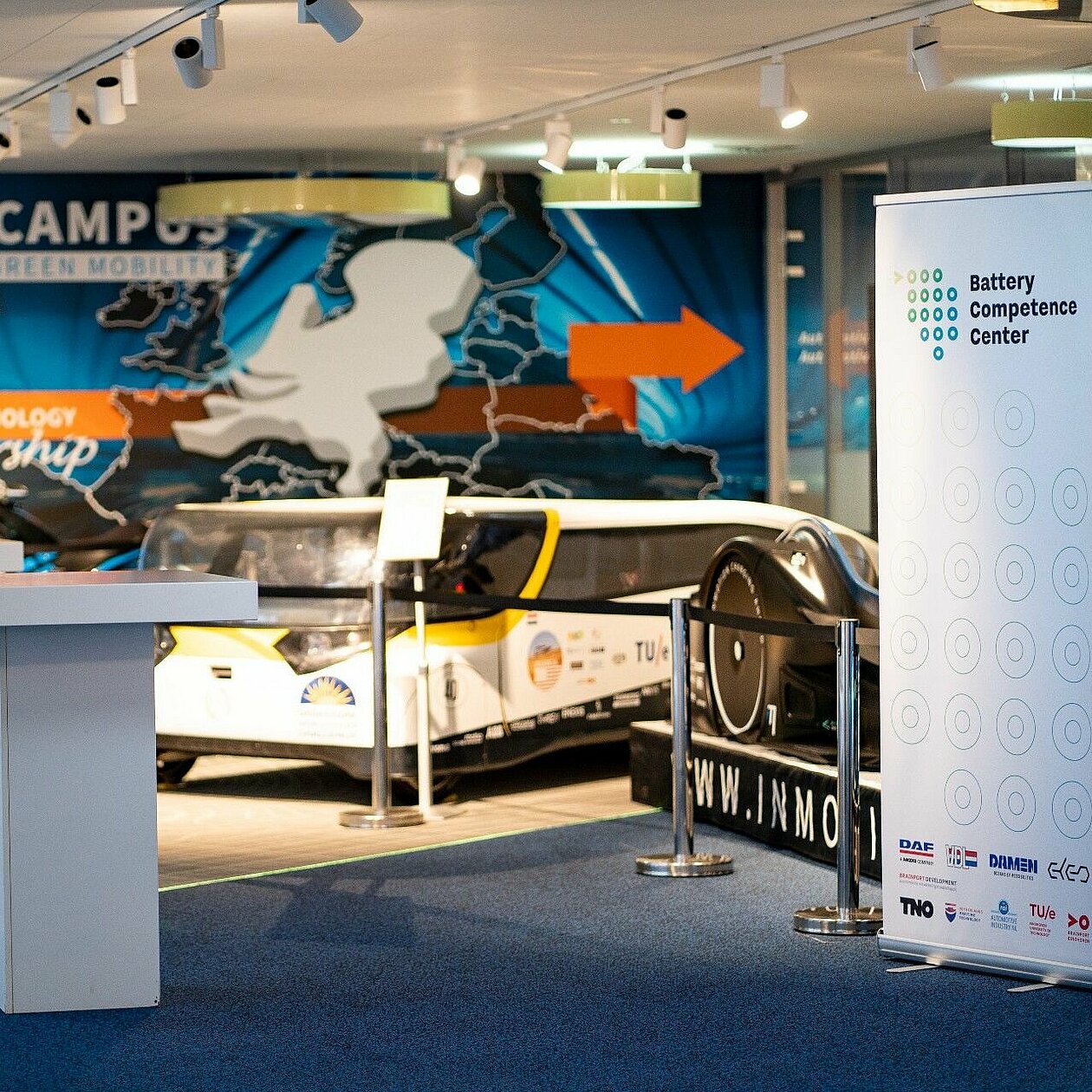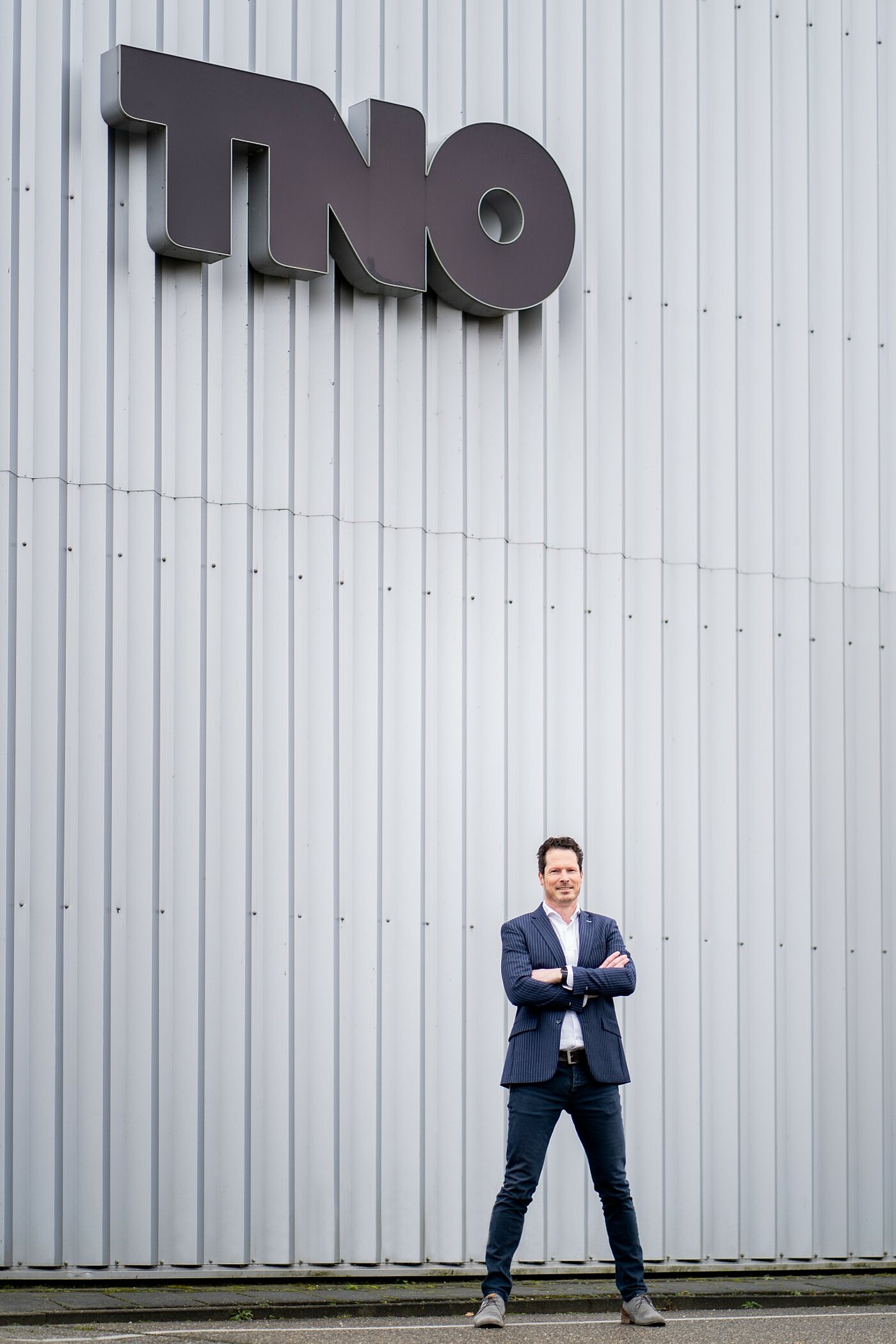03 April 2024
Charging into the Future: EU sets the standard with Battery Passport
Interview with Ronald van den Putte of TNO, partner of the Battery Competence Cluster - NL

My name is Ronald van den Putte and I am Senior Business Development Manager at TNO. I studied electrical engineering at the Eindhoven University of Technology, so my first job was in electrical engineering. Today, I work at TNO and I focus on electric power trains and battery technology.
I am at the market side of things and especially focus on what companies need in terms of batteries. I bring our expertise in this area to market. I look at market demand and how we as the Netherlands can make a difference. In other words: what technology we need to develop to meet the market’s needs and to enhance the Netherlands’ earning power. In my job, I make the connection between the market and the technology.

TNO is founding partner of the Battery Competence Center. Together, we want to bring the innovations that exist and the knowledge we have gained to market. TNO is acting as the bridge between universities and the industry. The BCC was founded to help companies collaborate in terms of electrification of the heavy duty industry, such as busses, trucks and vessels. By working together to innovate battery technology, we ensure we remain at the global forefront of this segment.
We started the BCC as a regional initiative, with the idea to scale up the center to a national program. And that is exactly what is happening now. The Battery Competence Center has been scaled up to the Battery Competence Cluster - NL, in which we cooperate on a national level. Together with the triangle of businesses, knowledge institutes and government we ensure that we maintain the right focus in terms of batteries. In other words, what is the Netherlands’ unique added value in respect of the world market.
TNO has an extensive and open test center at the Automotive Campus. We are testing on engines, vehicles and on batteries. At the center we also validate the models we are developing. For example, we expose a newly developed battery cell to various temperatures. We then measure the impact of a certain temperature on the battery’s lifespan. We integrate these data in a model to align the use of the (vehicle) battery modules to the circumstances in which a vehicle needs to operate. These mathematical models ensure that batteries last as long as possible. We do this from a sustainability perspective; the most sustainable battery is the battery with the longest lifespan. Within the BCC we are working together with the TU/e in developing models and algorithms.
TNO has a mission: ‘to enhance the competitiveness of companies and the wellbeing of society in a sustainable way’. That is what we are doing. We are trying to do that by bringing innovations to market and by ensuring that the Netherlands stays in the lead in a sustainable way.
Let us have a look at what we are good at in the Netherlands and jointly address this. Whether it is about manufacturing next generation batteries, making batteries circular or recycling the materials used in batteries. A battery contains many rare metals for example. Because we cannot extract those metals in the Netherlands, we are trying to recover them from old batteries. This is something TNO’s department for circular economy is working on.
Not only the Brainport region will be affected by BCC-NL’s innovations. I think that the Netherlands as a whole will benefit, simply because we have upscaled the regionally operating Battery Competence Center to a national platform; the Battery Competence Cluster - NL. By doing this, we as the Netherlands specify what we want to achieve in the area of batteries and where our strengths lie. This way, we can reach a significant position on a global scale and we know the investments needed to achieve that. I think it very important that also the government is clear about what our focus should be in the Netherlands to better distinguish ourselves. That is something we accomplished together. The next generation batteries, for example, offer opportunities, such as new anode materials and solid-state batteries. Allowing us to enhance the capacity, safety and charging time of batteries. We need to be quick to achieve this. If we wait, we will be left behind.
We are in the midst of an energy transition. Our energy must be generated and stored in a sustainable way. The battery is an important component in this transition. The fact that batteries are continuously improved, will increase the use of electric vehicles. Resulting in cleaner and quieter inner cities. Batteries are a means to an end; we need them to make sure we can actually travel the world emission-free.
It is TNO’s goal to not only support large companies in this transition, but to especially transfer knowledge to the smaller parties. With the models and algorithms we developed, we help these parties create the optimal battery package.
The Netherlands is at the forefront globally, because we are strict. That is why government policy is very important. Take for example the electric busses we see driving everywhere, they are stimulated by government policy. By setting rules, such as the fact that all new busses must be CO2 neutral by 2025, change is triggered. The same goes for zero-emission construction. Policy makes innovation necessary. Allowing us to be the first to actually export new technologies. This is how we jointly enhance the Netherlands’ earning power.

We want to be the linking pin between knowledge and industry. It is therefore important that we know the market. I want to talk to OEMs to better understand the market, but I also want to talk to the smaller parties. Because there are various mechanisms to help each other move forward. The government is also heavily involved. It is truly that triple helix of knowledge institutes, government and the industry that is the key to understanding the market and to, consequently, growth.
The beauty of it is that the Battery Competence Center started out with companies that might be competitors in the market. We experienced that we all gained by sharing pre-competitive information with one another. Creating an environment in which everyone is working together. It would be a great achievement, if we can further develop this into a nationally operating BCC-NL, where companies jointly work on projects, share information and grow stronger together.